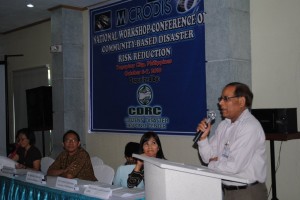
Community-based organizations, government agencies, local government units, NGOs, academics and other stakeholders in the field of disaster risk reduction met in Tagaytay City on October 7 for a National Conference on Community-Based Disaster Risk Reduction.
The gathering, which happened one year after Typhoon Ondoy hit the capital Manila, was organized by the Citizens’ Disaster Response Center through the MICRODIS Project, with support from the European Community’s Sixth Framework Programme.
“This activity aims to bring together various stakeholders to discuss ways to improve disaster management in the country”, CDRC Executive Director Lourdes Louella Escandor said.
On September 26, 2009, the country was caught by surprise when Typhoon Ondoy poured more than a month’s worth of rain in just 24 hours, inundating several communities under flood waters. It affected 4 million people, and killed 298, in one of the worst disasters the country has ever experienced.
“Typhoon Ondoy served as a wake-up call to most Filipinos. It only revealed the glaring fact that our country is not prepared for any kind of disaster,” Escandor said.
The Philippines also topped the list of countries most frequently hit by natural disasters in 2009, the records of the Belgium-based Centre for Research on the Epidemiology of Disasters (CRED) showed.
Escandor stressed that “only through a multidisciplinary and multi-stakeholder approach can we adequately reduce the debilitating effects of disasters.”
“This conference, which is part of the MICRODIS Project, has the overall goal to strengthen preparedness, mitigation and prevention strategies in order to reduce the health, social and economic impacts of extreme events on communities,” she added.
“This conference also hopes to increase the sharing of information and building of capacities and collaborations amongst various stakeholders in the field of natural disasters and human impacts,” Escandor said. #

Leave a Reply